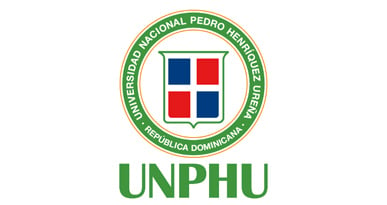Mostrar el registro sencillo del ítem
Trust and COVID-19 vaccine hesitancy in the Dominican Republic: a national cross-sectional household survey, June– October 2021
| dc.contributor.author | Garnier, Salome | |
| dc.contributor.author | Then, Cecilia | |
| dc.contributor.author | de St Aubin, Michael | |
| dc.contributor.author | Cadavid Restrepo, Angela | |
| dc.contributor.author | J Mayfield, Helen | |
| dc.contributor.author | Dumas, Devan | |
| dc.contributor.author | Duke, William | |
| dc.contributor.author | Pena, Farah | |
| dc.contributor.author | J Kucharski, Adam | |
| dc.contributor.author | Skewes, Ronald | |
| dc.contributor.author | Zielinski Gutierrez, Emily | |
| dc.contributor.author | Coyoli, Julia | |
| dc.contributor.author | Etienne, Marie Caroline | |
| dc.contributor.author | L Lau, Colleen | |
| dc.contributor.author | Vazquez, Marietta | |
| dc.contributor.author | Nilles, Eric | |
| dc.date.accessioned | 2024-06-12T00:35:48Z | |
| dc.date.available | 2024-06-12T00:35:48Z | |
| dc.date.issued | 2024-05 | |
| dc.identifier.citation | Garnier S, Then C, de St Aubin M, Cadavid Restrepo A, Mayfield, HJ, Dumas D, Duke W, Peña F, Kucharski AJ, Skewes R, Zielinski Gutiérrez E, Coyoli J, Etienne MC, Lau CL, Vázquez M, Nilles E . Trust and COVID-19 vaccine hesitancy in the Dominican Republic: a national cross-sectional household survey, June–October 2021. BMJ Open 14 (5) : e081523 e081523. 2024. https://doi.org/10.1136/bmjopen-2023-081523. | en_US |
| dc.identifier.uri | https://repositorio.unphu.edu.do/handle/123456789/5676 | |
| dc.description.abstract | Objective This study investigates the role of trust in shaping COVID-19 vaccine acceptance in the Dominican Republic (DR) during the COVID-19 pandemic. Design Cross-sectional household survey. Setting Randomly selected households across 134 clusters in the DR, from 30 June 2021 to 12 October 2021. Participants 5999 participants ≥16 years of age were enrolled. Outcome measures COVID-19 vaccine hesitancy (CVH) data were collected from participants ≥16 years of age and analysed as both an ordinal and binary variable. Results Overall, CVH was low (5.2% (95% CI 4.6% to 5.8%)), but more common among younger individuals, women and individuals of Mestizo ethnicity. Higher trust in local government, national government, scientists and local doctors (considered official sources) was associated with lower odds of CVH (OR 0.89 (95% CI 0.72 to 0.88), 0.89 (95% CI 0.81 to 0.98), 0.87 (95% CI 0.80 to 0.94) and 0.70 (95% CI 0.62 to 0.80), respectively). Higher trust in religious leaders, social media and traditional media (considered unofficial sources) was associated with higher odds of CVH, with respective ORs of 1.32 (95% CI 1.18 to 1.47), 1.30 (95% CI 1.19 to 1.41) and 1.08 (95% CI 0.97 to 1.22). Conclusion We report findings on CVH from a national household survey in the DR and identify overall low rates of CVH but marked heterogeneity by age, gender and ethnicity. Trust in unofficial versus official sources of information is associated with increased CVH. These findings highlight and quantify the importance of trust as a key parameter when considering public health communication strategies. | en_US |
| dc.language.iso | en | en_US |
| dc.publisher | BMJ Open | en_US |
| dc.rights | Attribution-NonCommercial-NoDerivatives 4.0 Internacional | * |
| dc.rights.uri | http://creativecommons.org/licenses/by-nc-nd/4.0/ | * |
| dc.subject | Vacunas contra la COVID-19 | en_US |
| dc.subject | República Dominicana | en_US |
| dc.subject | Coronavirus | en_US |
| dc.subject | COVID-19 | en_US |
| dc.title | Trust and COVID-19 vaccine hesitancy in the Dominican Republic: a national cross-sectional household survey, June– October 2021 | en_US |
| dc.type | Article | en_US |


